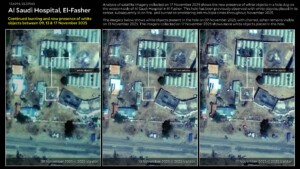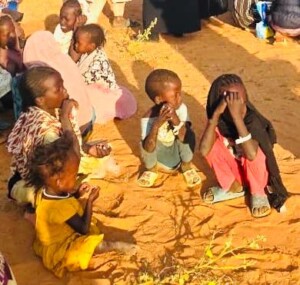Opposition: Sudan cabinet changes ‘recycling rather than reshuffle’
The opposition Coalition of the National Consensus Forces (NCF) have downplayed the importance of Sudan President Al Bashir’s cabinet reshuffle of 13 ministers and 10 governors, calling it ‘recycling to cover-up the fuel crisis’.
 Sudan's President Omar Al Bashir (File photo)
Sudan's President Omar Al Bashir (File photo)
The opposition Coalition of the National Consensus Forces (NCF) have downplayed the importance of Sudan President Al Bashir’s cabinet reshuffle of 13 ministers and 10 governors, calling it ‘recycling to cover-up the fuel crisis’.
Tarig Abdelmajid, a member of the secretariat representing the Communist Party, told Radio Dabanga that “the reshuffle is merely a change of names, pointing to the continuation of the nature and structure of the regime, which does not reflect the interests and wishes of the people nor mean much to the opposition forces”.
He said that the cabinet reshuffle “represents one of the episodes of scattering ash into people’s eyes and an attempt to cover the living and economic crises, especially the fuel crisis”.
He said the regime is still circulating rumours that the fuel crisis would be resolved, ships would arrive at the port and the refinery would be returned to work, but the crisis is still in place. He ruled out resolving the economic crisis through cabinet reshuffles, regional alliances or grants.
Abdelmajid accused the government of “plundering the people's goods, directing budgets to finance militias and security, spending them on the shaky state apparatus, in addition to corruption, muzzling the mouths, violating press freedoms, increasing the security grip, and accusing the government of fighting industrial and agricultural production”.
Bread and fuel crisis
He said that wheat in the Northern State, El Gezira, and New Halfa has not been harvested so far and that preparation for the summer season has not yet begun and pointed to the continuing bread and fuel crisis.
He said the reported apologising of a number of candidates to take the seats in the cabinet reflects a disintegration within the ruling regime and reveals the divisions among lobbies and groups.
Yahya El Hussein, a leading lawyer in the Sudan Call considered the reshuffle of the group to be limited.
He told Radio Dabanga that “the aim of the reshuffle is to tighten the security grip and the continuation of violations and ruled out that the reshuffle will improve the economic situation and find solutions to the worsening crises as new ideas or programmes do not accompany it aimed at moving the country into a new square… The president has resorted to an appointment that has been tried in other places for those obedient to him.”
NUP
The major opposition National Umma Party (NUP) led by El Sadig El Mahdi considered in a statement the amendments as “a matter concerning the regime and its internal conflict that has nothing to do with the citizen and the country, but showing more crises”.
The NUP said in its statement that “Sudan now needs a radical change of the totalitarian regime, starting with the president and ending with the most senior official in the ruling junta, not just an exchange of positions, because the crisis, the party says, is deeper than people are”.
The statement stressed that “the country does not need formal changes and called for the change of the entire government and not to bet on change from within the regime, but only bet on our free people”.
The statement called on all political and civil organisations to unite and engage in resistance by all peaceful means to stop tampering and corruption, restore democracy and freedom, realise the legitimate aspirations of our people for decent living and restore the prestige of the homeland.











 and then
and then